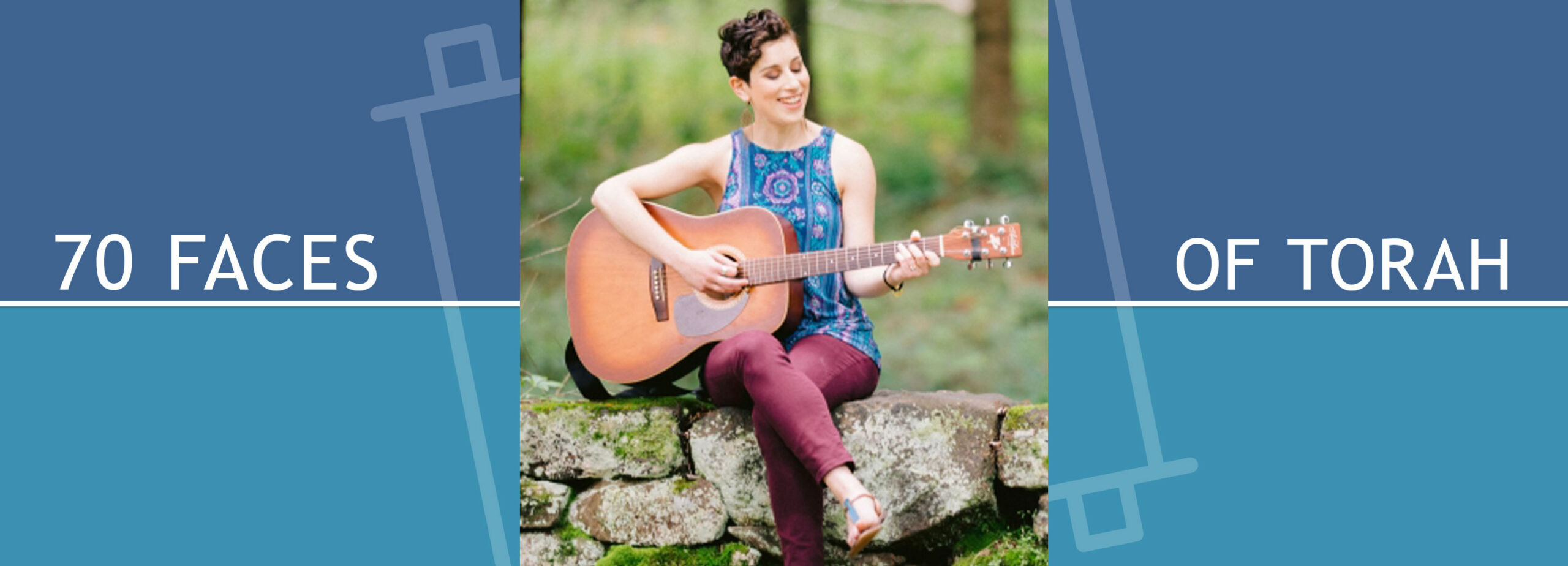Exodus Where Was Miriam?

Parashat Ki Tissa (Exodus 30:11-34:35)
It was asked of the episode of the golden calf:
Where was Miriam?
A new version of the story emerged (a midrash)—
When Moses was long in coming down from the mountain—too long—the people came to Aaron, feeling abandoned by Moses and by God. As Aaron instructed the people, Miriam watched from afar as it says, “his sister stationed herself at a distance” (Exodus 2:4).
Miriam remembered how she once prophesied that after the darkest of times would come salvation. She remembered how when Moses was born, her house filled with light (Sotah 13a). She remembered that there was always reason to hope.
She watched from afar as the men brought gold rings from their wives and children. She watched from afar as Aaron melted the gold into the shape of a calf. She watched from afar as the people sacrificed and sat down to feast and rose up to make merry.
She did not bring her drum forth, as after the splitting of the sea. She did not lead the women out in dance. Instead, she sang quietly on their behalf as it says, “And Miriam chanted for them: ‘Sing to God because God is exalted’” (Exodus 15:21).
Over and over she chanted the words.
And when Moses came down the mountain and he saw the calf and the dancing, he grew enraged, and he threw the tablets from his hands and he broke them at the foot of the mountain. And Moses took the calf and burned it. He ground it to a powder and strewed it into the water and made the Israelites drink it (Exodus 32:19-20).
And Miriam went to the foot of the mountain, where she slowly gathered up the shards of tablets. She pieced them together, one by one, like a puzzle, and as she did, she felt in her fingers the divine teachings that had already settled deep within her.
So while Moses and Aaron yelled at each other, Miriam gathered the pieces together in her arms and walked carefully to her tent. There, she found a certain basket. As it says, “She took a reed basket for him” (Exodus 2:3). And she placed the shards in it.
Because she understood that when we break, we must hold the pieces tenderly. Because she knew this wasn’t the end of the story.
When Moses ordered a rampage, which left 3,000 people dead (Exodus 32:27-29), Miriam again watched from afar. As she listened to the sounds of the slaughter, her heart shattered like the tablets. And she cried from the salty well of heartbreak and horror and hope within her. She tried to remember to hold her broken heart with tenderness.
And after the killing ceased, Miriam joined the voices of the wailing women. And she brought clean water from the well (as she always did) and she gently washed the deceased. And she comforted the mourners with crooning and cooing, like comforting a baby.
Sometime later, after there was a second set of tablets and a tabernacle where God could dwell, Miriam brought the basket which held the broken tablets and placed it in the sanctuary, next to the new tablets.
The shards stayed like that, in their own teva, their own little ark,
where they kept memories afloat—
Memories of broken words and broken hearts.
Memories of rivers and seas.
Of tears and songs.
Of second chances
and of long journeys
toward
freedom.
Please contact the author if you’d like to share any feedback.
- Babylonian Talmud Taanit 9a.
- Rashi on Exodus 1:15: Puah—This was Miriam, and she bore this additional name because she used to call aloud and speak and croon to the babe just as women do who soothe a child when it is crying.
- Babylonian Talmud Bava Batra 14a-b: There was nothing in the Ark except [the two tablets which Moses put there] and the broken pieces of the [first set] of tablets.
Leah Carnow (she/her) is a rabbinical student in her fourth year of school at Hebrew College. Originally from Los Angeles, Leah lived in the Boston area for over 10 years, where she worked as a yoga teacher, actor, director, healthcare professional, and Jewish educator. Leah is currently spending her second consecutive year studying in Jerusalem.

